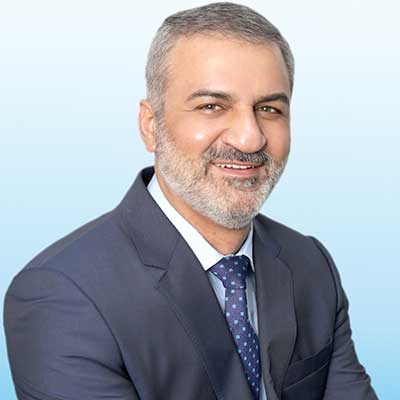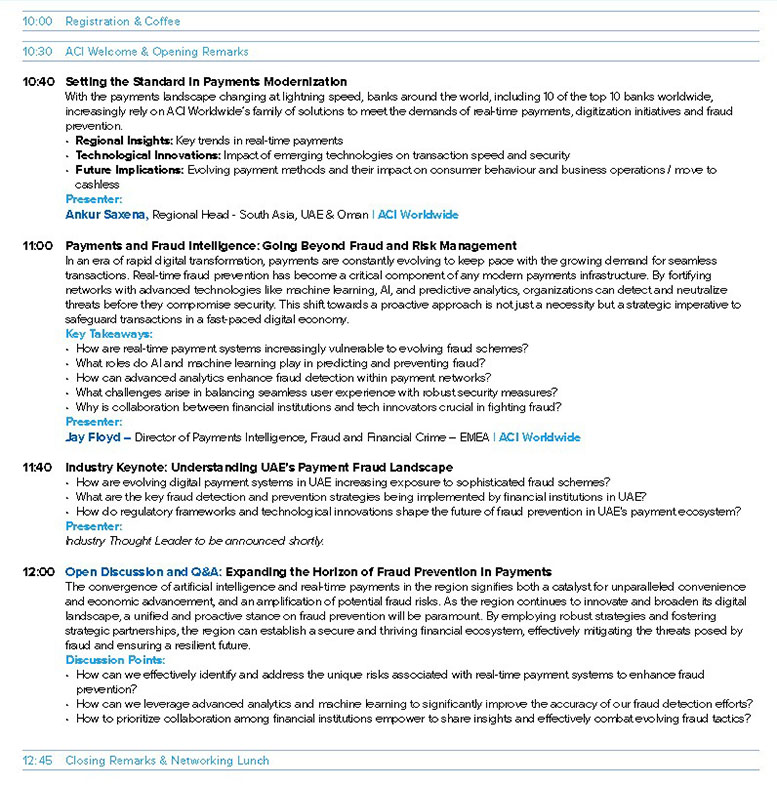Expert Insights


Dr. Newrajlall Burton
Regional Sales Director
ICPS
Collaboration between governments, financial institutions, and the private sector is of extreme importance to foster economic development, innovation, sustainable growth and competition within the financial services industry.

Carlin Wicomb
Chief Commercial Officer
EFT Corporation
Regulatory frameworks are increasingly adapting to the rapid advancements in digital banking and fintech in order to foster innovation while ensuring that consumer protection and data privacy remain paramount.

Alexander Forson
Head E-Business
Agricultural Development Bank PLC
It can be mentioned that regulatory frameworks are evolving to strike a balance between supporting innovation in digital banking and fintech, while ensuring consumer protection and data privacy.

Sarah Harrach
Senior Business Innovation Consultant
HPS
I believe regulatory frameworks are crucial for both innovation and consumer protection, regardless of the industry, but especially in banking.

Ramona Maria Voiculescu
Business Development Director
Qoobiss
"I think regulatory frameworks for digital banking and fintech are evolving consistently, precisely and fast enough to balance the promotion of innovation."

Mr Ritesh Shukla
CEO
NPCI International Payments Limited (NIPL)
"Establishing a digital payment infrastructure enhances the efficiency, security, and accessibility of financial services of a country, thus empowering the economic well-being of its citizens."

Khevin Seebah
Chief Executive Officer
ICPS
“The relationship between fintechs and banks has shifted dramatically from the past. We’re moving from a period of cautious experimentation to a phase of strategic partnership and co-creation.”

Zahid Mustafa
Chief Executive Officer
I&M Bank (Tanzania) Ltd
“Banks are keeping abreast with technology and evolving customers needs. It is for this reason that banks are regaining their lost ground against the digital disruptors.”

Sarah Corley
CEO
Alliance of Digital Finance and Fintech Association
“Digital Finance and Fintech Associations can play an important role in market facilitation and ecosystem building. An independent, third-party review conducted by Baastel and commissioned by our fiscal sponsor Digital Frontiers (DF) found that ” there is substantial evidence to assert that DFA’s are relevant and effective in actively contributing to the advancement of digital financial and gender inclusion through increased awareness, discussion, ideation, collaboration, networking, and advocacy.”

Dr. Hassa Saif Al Mazrouei
Medical Director Patient Experience, Director of Internship Program, Obstetrics and Gynecology Physician
Sheikh Shakhbout Medical City (UAE)
“Patient experience strategies will need to be more focused on culture-wide change that can be measured and analyzed in the future.”

Dr. Raza Siddiqui
Group CEO / Executive Director
Arabian Healthcare Group / Ras Al Khaimah (RAK) Hospital
“Innovation and empathy are at the forefront of this shift. We’re seeing an unprecedented integration of digital technologies that not only enhance patient engagement and access but also empower patients with greater control over their healthcare decisions. This digital evolution is complemented by an increased emphasis on mental health, recognizing its critical role in holistic patient care.”

Alice Yammine Boueiz
Chief Executive Officer
Arab Hospitals Federation
“Innovation can enable personalized care delivery tailored to individual patient preferences, values, and circumstances. Technologies such as artificial intelligence and predictive analytics can analyze patient data to anticipate needs, identify risk factors, and tailor treatment plans accordingly. This personalized approach not only improves clinical outcomes but also demonstrates empathy by recognizing and addressing the unique needs of each patient.”

Amna Hamad Al Mesafri
Patient Experience Director
Sheikh Shakhabout Medical City (SSMC)
“In healthcare, transformative empathy can drive innovation by leading to the development of technologies and practices that more closely align with the actual needs and experiences of patients.”

Dr. Mohammed Smadi
CEO
Penguin Location Services
“Achieving positive outcomes starts with successfully having the patient find where they are going and arrive on time.”

Dr. Héctor Upegui
Worldwide Market Development Executive & Chief Health Officer
Merative
” The patient experience approach is a collective journey for all participants within the system. Designating 2024 as the Year of Patient Experience aids in maintaining a trajectory towards success. The construction and recognition of milestones within this journey are crucial.”

Manuel Carvalho
Chief Operating Officer
Oman International Hospital
“Transformative Empathy is one of the pillars of Patient Experience, where we bring innovation into the core of healthcare provision, but meeting the specific ways patients feel “at home” while receiving it.”

Dr. Rabbie K. Hanna, MD
Chief Medical Officer
Warith International Cancer Institute (WICI)
” With integrating the social information of the patient into our doctor-patient relationship, the patient becomes a part of the family during the treatment process and afterwards, enhancing their adherence to care, improved outcomes, and retention.”

Dr. Majeda Afeef Al-Ruzzieh
Chief Nursing Officer, Chairperson Patient - Centered Care Committee
King Hussein Cancer Center (Jordan)
“Empathy serves as the foundation for driving innovation in healthcare practices, fueling innovation in the healthcare system by enabling personalized care solutions tailored to patients' unique needs, preferences, and values.”

Carolyn Palsky
Head of Operations
GluCare Integrated Diabetes Center (UAE)
” Combining digital healthcare with traditional healthcare systems allows for the best of both worlds”


